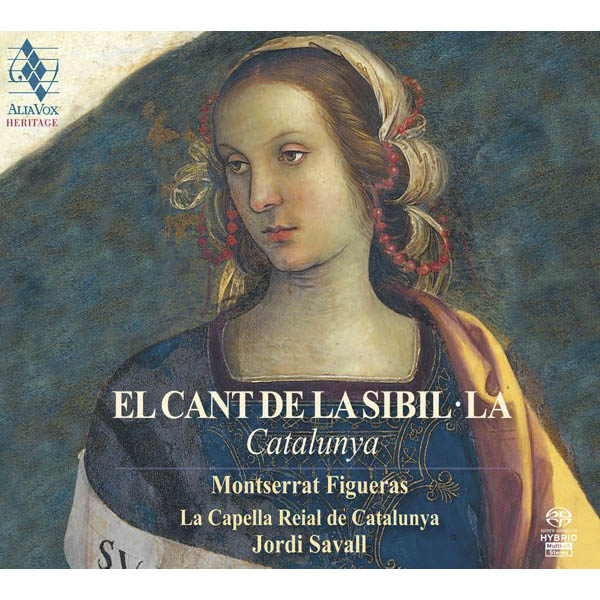EL CANT DE LA SIBIL·LA
Catalunya · Montserrat Figueras
Jordi Savall, La Capella Reial de Catalunya, Montserrat Figueras
Alia Vox Heritage
15,99€
Refernce: AVSA9879
- Montserrat Figueras
- La Capella Reial de Catalunya
- Jordi Savall
For centuries, the Song of the Sibyl was traditionally sung by the oneiric voice of a young boy. This was because women were forbidden by the Church Fathers to sing in places of worship, with the exception of female monasteries. The result of this ban was that the prophetic female figure who proclaimed the message was lost to us. The patriarchal nature of the Church thus deprived women of the opportunity to act as vehicles of the divine word. Thanks to this ancient song, however, the light of the Delphic, Persian, Libyan, Cumean, Erythrean, Samian, Cuman, Hellespontine, Phrygian and Tiburtine Sibyls continues to live on in the female voice and figure.
The Sibyl of Classical Greece is the archetypal woman as prophetess and priestess. Wise woman and vehicle for divine revelation, she also symbolises archaic woman, bringing together many of the attributes which in ancient times were embodied in the mother goddesses of the Paleolithic and the Magna Maters of Eastern and Greco–Roman antiquity, such as Isis, Ixtar, Demeter and Atargatis.
The figure of the oracle of the Erythrean Sibyl in the second century BC, foretelling the advent of a golden age of mankind ushered in by the birth of a child, the son of a virgin mother, was used by Christianity to proclaim the second coming of the Messiah. The tradition of performing the Song of the Sibyl at Christmas seems to have had its musical origins in 9th–10th centuries (Saint Martial de Limoges). Although the apocalyptic visions expressed in it are searingly tragic, the music is magical and full of harmony: the beginning of each verse opens on an interval of an ascending fifth, creating in us a meditative mood as we listen to the sacred, spherical story.
+ information in the CD booklet
MONTSERRAT FIGUERAS
Translated by Jacqueline Minett







Share